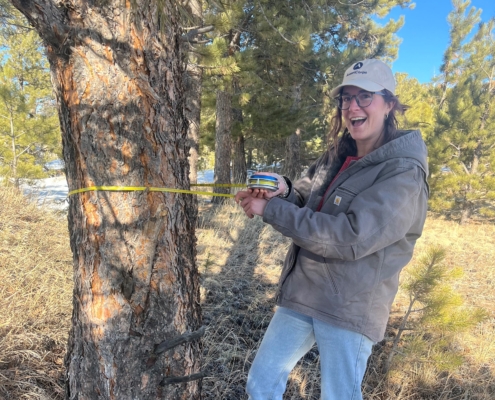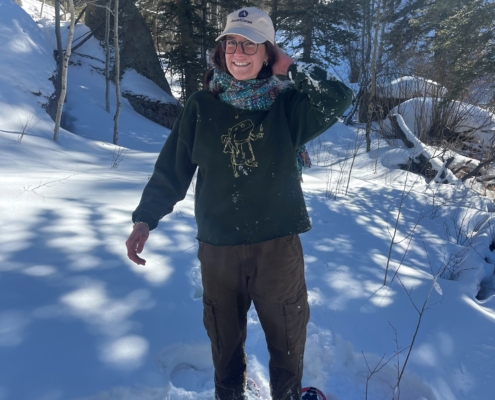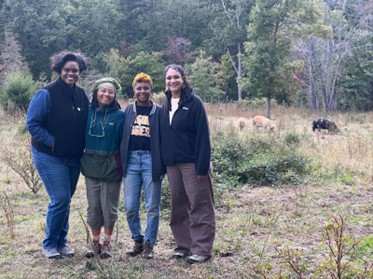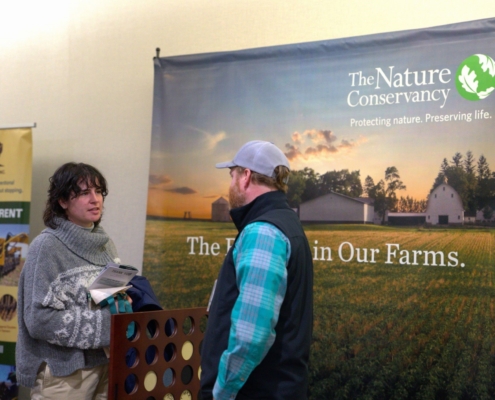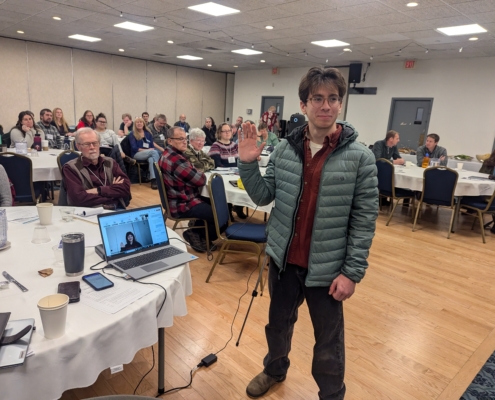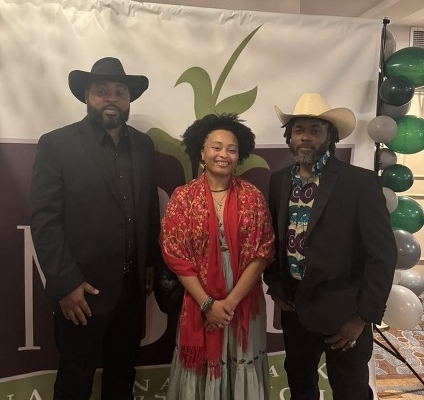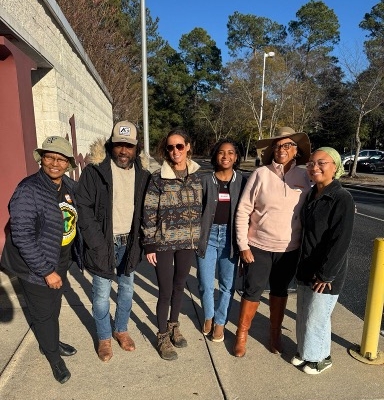Working Lands Conservation Corps (2024 – 2025)
An Initiative to Train the Next Generation of Conservation Professionals in Regenerative Agriculture and Forestry
About the Working Lands Conservation Corps (WLCC)
In 2024, The Corps Network, the National Association of Service and Conservation Corps, partnered with the Natural Resources Conservation Service (NRCS)/United States Department of Agriculture, AmeriCorps, and the National Association of Conservation Districts to implement the Working Lands Conservation Corps (WLCC).
Funding from PACT supported The Corps Network’s ability to provide subgrants to organizations to host WLCC members across the country. The WLCC members provided outreach and education around agriculture assistance to farmers, ranchers, and communities. WLCC host organizations worked with state and county-level NRCS staff to facilitate conservation and resilience projects, track WLCC member activities, and train members for agriculture careers.
WLCC Member Reflections
This experience also reshaped my own relationship with land. It’s what inspired me to work with my grandfather to conserve my late grandmother’s property in South Carolina. Like so many Black families, we’ve navigated the challenges of land retention and resource access. Through my fellowship experience, I learned about conservation strategies, funding pathways, and the importance of community-led solutions—knowledge I’m now applying to help ensure my family’s land remains intact for future generations.
This program gave me the opportunity to leave my corporate job and fully dedicate myself to work that aligns with my values as a Black woman with roots in the Carolinas. Programs like WLCC are essential, and I truly hope to see it return in the future so more young professionals can have the same transformative experience I did. – Lorena James, Nature for Justice, North Carolina
At its core, service isn’t about boosting a LinkedIn profile; it’s about taking the energy you have and channeling it into something bigger than yourself. It’s about engaging with the community and learning from people who think and live differently than you do. In the giving of time to the community it may be easy to see how one is giving, but in reality, I am receiving far more in terms of lived experience that is hard to quantify and real development in the inner working of my personhood. – Rachel Post, Teller Park Conservation District, Colorado – Read more

